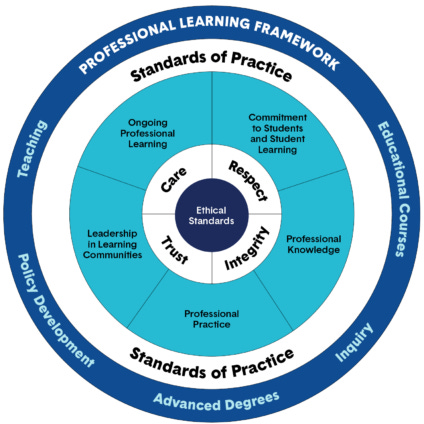
What makes a "great" language teacher?
My motto is “When one teaches, two learn.” A teacher must constantly keep learning and keep improving. There is no relaxing on a moving train. This “teacher as learner” quality is an important part of being a great teacher. I’ll return to that at the end of this essay.
A variety of abilities and traits are necessary to be a successful English language instructor. Just showing up is a good start but only a start. After that, you’ll need to have a number of skills that you can work on, to grow, and develop as a teacher.
In addition, as you acquire experience, you’ll need a few innate qualities to succeed. Your secret sauce.
The following are some of the most crucial abilities and traits that an effective English language instructor must possess:
Strong communication abilities: English language teachers must be able to explain difficult ideas and concepts to their students in a clear and concise manner. This includes the capacity to communicate succinctly and precisely, as well as the capacity to actively listen to and comprehend the wants and worries of their students.
Patience and flexibility: Teaching can be a challenging and rewarding profession, and English language teachers need to be patient and flexible in order to meet the needs of their students. This may involve adapting lesson plans to fit the needs of individual learners or providing additional support to struggling students.
Cultural sensitivity: English language teachers often work with students from a variety of cultural backgrounds, and it is important for them to be sensitive to these differences and to be able to adapt their teaching style accordingly. This may involve being aware of cultural norms and expectations, as well as being open to learning about different cultures and ways of life.
Creativity: English language teachers need to be able to come up with engaging and creative lesson plans that keep their students motivated and interested in learning. This may involve using a variety of teaching methods and resources, such as games, videos, and interactive activities.
Organizational skills: In order to properly plan and carry out lessons, manage their time, and maintain tabs on student development, English language teachers must be well-organized. This could entail developing lesson plans, marking homework, and maintaining a student performance log.
Commitment to ongoing learning and professional development: It is crucial for English language instructors to be dedicated to continual study and professional development in order to stay current on the most effective teaching strategies and methodologies. Teaching is a profession that is constantly changing. This could entail going to seminars, conferences, and training sessions, as well as keeping up with new findings and advancements in the discipline of teaching foreign languages.
Instructors likewise need a unique sort of close-to-home perseverance. Grit. Teaching day in and day out, it’s a hard calling. You’ll require the capacity and confidence to hold tight, every day of the week. You’ll require a soul that draws strength from the reality you are “contacting what’s in store” and having an effect, every single day.
There are a number of daily tasks that a teacher should excel at performing in the classroom:
Planning and Preparation: A teacher should have a firm grasp of the material they are teaching and create interesting, current lessons that are in line with curricular requirements.
Foster a supportive, inclusive, and courteous learning environment: Teachers should establish a climate in their classrooms that is conducive to learning for all students. This may entail establishing unambiguous expectations for behavior, employing constructive criticism, and fostering a sense of community.
Differentiation of Instruction: A good teacher should be able to adjust their lessons to the various needs of the pupils they are teaching. This could entail modifying materials, offering accommodations, or utilizing a range of instructional techniques.
Assess of student learning: A teacher should use a variety of formative and summative assessment techniques to gauge student understanding and provide feedback to help students make progress.
Effective communication: A teacher should be able to effectively communicate with students, parents, and colleagues. This may involve using clear and concise language, actively listening, and adapting communication styles to meet the needs of different audiences.
Time and Resource management: A teacher should be able to effectively manage their time and resources to create an efficient and effective learning environment.
Subject knowledge. Teachers need to know their subject well. For language teachers, this means having a high level of language fluency themselves and also knowledge about the grammar, pronunciation and workings of the language they are teaching.
Psychological strength. Teachers are motivational specialists. They know how to get the most our of their learners and how to look at each learner from the point of view of their mental make-up and character.
Reflect on and continually improve their practice: A teacher should be willing to reflect on their teaching and seek out opportunities for professional development to improve their practice.
Overall, being a successful English language teacher needs a set of abilities and traits that allow you to support and interact with your pupils effectively, as well as being flexible, innovative, and dedicated to lifelong learning and professional growth.
It’s a lot. It’s why teaching is also an art, not just a science and why it is a special, highly valued profession. Anyone can teach but not just anyone can excel and thrive at teaching.
Review this nice framework outlining what it takes to be a competent teaching professional.
Good luck in your own teaching and most importantly, development as a teacher! To close, remember this …
The fact that you worry about being a good teacher means that you are already one! It’s the essential teacher ingredient!














